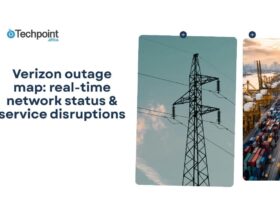Paradigm Towers Seizes Opportunity: Transforming IHS’s Rwanda Exit into a Bold Growth Strategy

In October 2025, Paradigm Tower Ventures completed a landmark $274.5 million acquisition of 1,465 telecom towers from IHS Rwanda, signaling IHS Towers’ exit from the Rwandan market and the arrival of a dynamic new contender. For Paradigm, co-founded by telecom expert Stephen Harris, Rwanda serves as the strategic starting point for an ambitious expansion across Africa’s infrastructure landscape.
“Our negotiations with IHS spanned roughly 18 months,” Harris shared in a recent TechCabal interview. “Their announcement to raise $500 million through asset sales created an opening for us. Rwanda was particularly attractive due to its premium infrastructure, robust regulatory framework, and relatively fewer operational hurdles compared to other African countries.”
Established in 2019, Paradigm has prior experience in Tanzania but views Rwanda as the inaugural market under its revamped investor platform. Supported by British International Investment (BII), Proparco, and Convergence Partners, Paradigm aims to leverage its Rwandan foothold to drive growth throughout Sub-Saharan Africa.
Harris highlights Rwanda’s unique blend of opportunity and reliability. “Unlike many African markets, Rwanda benefits from stable power and security conditions,” he noted. “Approximately 90% of the towers are connected to the national grid, which boasts a 96% reliability rate-this underpins our operational effectiveness.”
Looking ahead, Paradigm intends to construct at least 250 additional towers over the coming years, focusing on expanding coverage in underserved rural regions. “Our dialogue with regulators has been encouraging,” Harris added. “They are dedicated to enhancing connectivity and service standards, and our goals are well aligned.”
Funding Structure and Investor Trust
The acquisition was financed through a combination of equity and debt. Rand Merchant Bank (RMB) served as the exclusive lender, lead arranger, and advisor, while BII, Proparco, and Convergence Partners contributed as equity stakeholders alongside Paradigm.
Harris explained the rationale behind partnering with RMB: “Not every international bank is equipped to lend in Rwanda. Our financing plan includes a phased approach to refinance portions of the debt with local Rwandan banks, mitigating foreign exchange exposure since our revenue streams are in local currency.”
Abhinav Sinha, BII’s Managing Director and Head of Technologies, Telecoms, and Sustainable Industrials, emphasized the deal’s alignment with BII’s long-term vision for Africa’s digital infrastructure.
“We have a longstanding relationship with Stephen,” Sinha remarked. “Paradigm stands out as one of the few firms ready to accelerate growth where others have slowed. Telecom towers are critical to digital connectivity, and Rwanda offers a strong nucleus for expansion.”
Sinha further noted that the investment aims to address both commercial viability and Africa’s connectivity deficits. “There’s not just a coverage gap but also a quality gap,” he said. “Development finance institutions like ours play a pivotal role in mobilizing private capital, instilling early confidence, and ensuring sustainable impact.”
Reasons Behind IHS’s Exit and Paradigm’s Growth Prospects
Contrary to assumptions, IHS Towers’ departure from Rwanda was not due to poor performance. “They divested Rwanda because it was a strong asset, ideal for capital raising,” Harris clarified.
Nonetheless, Rwanda’s relatively small population of just over 14 million and approximately 5.5 million broadband users imposes economic constraints. Paradigm is confident it can navigate these challenges through operational excellence and targeted growth.
“While Rwanda’s market size is modest compared to giants like Nigeria, its digital ecosystem is vibrant,” Harris explained. “The government’s progressive stance, rising data consumption, and technological advances-such as solar and battery innovations-make rural expansion feasible.”
Paradigm is actively exploring solar-hybrid power solutions for off-grid towers and adopting compact, cost-effective tower designs. “Shared infrastructure economics have improved significantly,” Harris said. “More energy-efficient equipment and affordable batteries enable us to economically serve low-density areas.”
Although Harris withheld specifics on new markets, he confirmed Paradigm is evaluating several Sub-Saharan African countries. “Our investment criteria prioritize strong legal systems, viable mobile operators, and supportive regulatory environments. We won’t enter markets where ethical and transparent operations aren’t possible.”
He also stressed the importance of markets that recognize the value of independent tower companies in alleviating operators’ capital expenditures. “Our model eliminates a major barrier-passive infrastructure costs-facilitating faster network rollouts and wider connectivity.”
Addressing Affordability and Bridging the Digital Divide
As Rwanda’s largest tower operator, Paradigm shoulders significant responsibility and opportunity. With broadband penetration at 38%, affordability remains a critical obstacle to digital inclusion.
“Affordability is multifaceted,” Harris observed. “Smartphones are becoming more accessible-you can now purchase one for as low as $30-but network cost-efficiency is equally vital. That’s why we’re investing in renewable-powered towers and smaller-scale infrastructure to reduce operating expenses.”
Sinha echoed this perspective, underscoring the link between infrastructure investment and economic development. “Connectivity drives job creation,” he said. “Mobile internet empowers commerce, logistics, and information access. Governments increasingly view digital access as a strategic economic tool.”
For Paradigm and its backers, success will be measured by both financial returns and social impact. “If Paradigm can enhance operational efficiency, boost tower tenancy, and expand sustainably into new territories, that represents a significant achievement,” Sinha concluded.
Harris’s vision for success is twofold: “To satisfy customer demand by deploying new sites where needed and to extend coverage to rural communities still offline. Our mission is to make connectivity universal, affordable, and sustainable.”








Leave a Reply